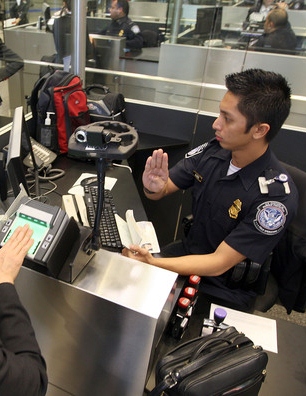Archive for March 27th, 2012

Bias in ganja cases queried
 (CNS): The North Side member has raised concerns about bias shown against a young Caymanian who will not be able to continue his studies because of a conviction for consuming ganja when another young man who, Ezzard Miller believes, has family connections to a leading law firm has escaped the same fate, despite also having a drug conviction. Although he has a 100% attendance and a 3.58 grade average, Anthony Berry (20) has been refused entry into the USA to begin his second semester at university as the authorities say he is permanently ineligible to enter because of a two year old drug related offence, which the Court of Appeal upheld last week.
(CNS): The North Side member has raised concerns about bias shown against a young Caymanian who will not be able to continue his studies because of a conviction for consuming ganja when another young man who, Ezzard Miller believes, has family connections to a leading law firm has escaped the same fate, despite also having a drug conviction. Although he has a 100% attendance and a 3.58 grade average, Anthony Berry (20) has been refused entry into the USA to begin his second semester at university as the authorities say he is permanently ineligible to enter because of a two year old drug related offence, which the Court of Appeal upheld last week.
Meanwhile, in September an un-named young man who had pleaded guilty to involvement in a scam over the Foster’s Food Fair Punch and Play Cards was also convicted of possession and consumption of ganja when he was arrested, but his conviction was not recorded.
Also an overseas student, in this case the young man’s attorney had asked the court to withhold the conviction against his client so it would not interfere with his ability to study. The magistrate ordered that the drug conviction not be recorded on the condition that no further offences occur for the next two years but the defendant was handed down a $200 fine.
In Berry’s case the Cayman Islands Court of Appeal said it was not able to assist him as it could not tell the United States authorities that he was not guilty of a controlled substance related offence as he had pleaded guilty. The three judges saw no way to provide him with a document he could use to persuadeUS authorities that the offence had not really happened and there had been no conviction.
Miller said he was disgusted that one young man’s future has been ruined because he does not have the connections while another’s has been saved, even when they had committed and pleaded to the same offence.
“I am appalled at how two young men can be treated so differently, with one remaining un-named by the courts and the conviction withheld while the second has his whole future in question because of the same conviction over cannabis,” he added.
Miller added that this kind of criminal record was haunting people throughout their lives, which was one of the reasons why he had brought a motion to the Legislative Assembly last year to free people from a lifetime of problems. Decades after being convicted over consumption of ganja, people were still not able to go to the States and it was even hampering their ability to get work locally, the independent MLA added.
“These criminal records haunt people all their lives but government has done nothing about the motion I brought to the Legislative Assembly to address this,” he said. “With overseas staff requiring a police clearance certificate, many employers extend that to local employees as well, and for those Caymanians who have these lingering convictions that may be decades old, they are now also finding it increasingly difficult to get work in their own country.”

Bosses aim to reduce sick leave among civil servants
 (CNS): The level ofsick leave taken by public sector workers appears to be a concern among civil services bosses as it was one of the issues discussed during the deputy governor’s meeting with the heads of department last week. According to the minutes from Monday 19 March which were pro-actively released by the deputy governor’s office the chief officers agreed that the civil service should have uniform policies regarding sick leave. The managers pointed to a need to ensure consistent administration and application of the leave and to reduce any abuse.
(CNS): The level ofsick leave taken by public sector workers appears to be a concern among civil services bosses as it was one of the issues discussed during the deputy governor’s meeting with the heads of department last week. According to the minutes from Monday 19 March which were pro-actively released by the deputy governor’s office the chief officers agreed that the civil service should have uniform policies regarding sick leave. The managers pointed to a need to ensure consistent administration and application of the leave and to reduce any abuse.
Various initiatives to further reduce the level of leave being taken were discussed but the minutes don’t reveal any details of the amount of time being taken by employees in the public sector or to what extent the system is being abused.
The minutes record that the portfolio of the civil service is to circulate the latest guidance on sick leave to Chief Officers.
Among other issues discussed at the public sector bosses meeting was a Cabinet note regarding health insurance for civil servants and pensioners but no details were reveal in the minutes to indicate what the note was about.
In addition, the proposed Deputy Governor’s Award was approved by the civil service chiefs who will be continuing their work on the new award scheme.
The senior managers also heard that Dr Paul Sutton will be delivering a presentation to civil servants regarding the changes in the Cayman and UK relationship on March 27 and that Lord Blencathra, Head of the London Office, will be available to meet with Chief Officers this week.
See minutes below

Jacques Scott takes home the ‘Major’
 (CRFU): The Cayman Rugby Football Union re-launched its annual golf “scrumble” on 23 March at the North Sound Golf Club having not featured on the local golf scene since 2009. The Tournament, a Fourball Scramble, featured 20 teams taking on the course and Jacques Scott took home top honors in a close run race. Rawlinson & Hunter finished on the same score as Jacques Scott but with the latter getting a better back nine score, the tournament rules dictated that Jacques Scott were awarded the “Major” (in memory of Steven Hall-Jones aka. the Major). Proceeds of from the tournament were donated to the Cayman Men’s Rugby program ahead of their 2015 IRB Rugby World Cup qualifying campaign.
(CRFU): The Cayman Rugby Football Union re-launched its annual golf “scrumble” on 23 March at the North Sound Golf Club having not featured on the local golf scene since 2009. The Tournament, a Fourball Scramble, featured 20 teams taking on the course and Jacques Scott took home top honors in a close run race. Rawlinson & Hunter finished on the same score as Jacques Scott but with the latter getting a better back nine score, the tournament rules dictated that Jacques Scott were awarded the “Major” (in memory of Steven Hall-Jones aka. the Major). Proceeds of from the tournament were donated to the Cayman Men’s Rugby program ahead of their 2015 IRB Rugby World Cup qualifying campaign.
Special mention goes to the tournament sponsors, AON, CSI International Underwriting (Cayman), Mise en Place professional catering, Butterfield Bank (Cayman), Red Sail Sports and Jacques Scott Ltd.

Still no public accounts
 (CNS): Despite government’s claims that it had turned a corner on public finances, the goal to produce entire public sector financial statements for the last financial year has still not been achieved. According to the Public Management and Finance Law, the government is supposed to produce the audited full accounts for public scrutiny in the December following the end of a financial year. This has not happened since 2004 and although officials said government would produce these accounts for the financial year 2010/11, the audit office has confirmed that the accounts will not be ready before June, some twelve months after the end of that financial year and six months late.
(CNS): Despite government’s claims that it had turned a corner on public finances, the goal to produce entire public sector financial statements for the last financial year has still not been achieved. According to the Public Management and Finance Law, the government is supposed to produce the audited full accounts for public scrutiny in the December following the end of a financial year. This has not happened since 2004 and although officials said government would produce these accounts for the financial year 2010/11, the audit office has confirmed that the accounts will not be ready before June, some twelve months after the end of that financial year and six months late.
“At the end of October 2011, the government provided the Office ofthe Auditor General with its draft 2010-11 Entire Public Sector (EPS) financial statements for audit,” a spokesperson for the auditor general’s office confirmed Tuesday. “This was the first time the government had presented EPS financial statements for audit since 2003-04. Since receiving the draft statements, the Office of the Auditor General has been working with finance officials to obtain the necessary information to complete the audit. We have agreed with government and set a deadline to issue our report by the end of June 2012.”
In August public officials claimed the submission of accounts by all public sector entities by the PMFL deadline as an achievement because it was the first time since the law was introduced in 2005 that the government had managed to meet its obligation under the law.
However, in his update on the state of public accounts in December, Auditor General Alastair Swarbrick said that in the case of at least eight entities the information submitted was not sufficient for the office to begin an audit and warned that the quality of information submitted by those that had made the deadline was not necessarily of sufficient quality for his office to audit.
Nevertheless, the premier, in his role as finance minister, described it as a “great accomplishment” and when government submitted Consolidated Financial Statements to Auditor General by the 31 October deadline, McKeeva Bush said “another important milestone” had been reached. “These two accomplishments demonstrate the government’s determination to improve public accountability and reporting,” he said in November.
However, in his December report Swarbrick said he had concerns about many of the submissions, in particular both the premier and the deputy premier’s ministries. He said that it was difficult to say whether the quality of information submitted for the consolidated accounts would enable the public to gain a comprehensive view of how government has spent tax payer’s money in the last financial year.
Swarbrick warned that getting accounts in on time was only the first step in the process of government's accountability to legislators and the public at large.
The quality and credibility of the accounting and performance information government submits for audit is important, he said, as the reports are fundamental when it comes to informing legislators and the public how the dollars collected from them in duties and fees are used.
“It is important that legislators and decision makers have good financial information on which to base their decisions,” Swarbrick said. “The information has to be as reliable and accurate as possible as well as timely.”
He explained that the information is how legislators hold government to account for the money it has spent and how money should be used and appropriated in future years. The general public needs “to be able to see how the fees and duties they have paid have been used,” he explained.
In addition, a significant number of annual reports that have been completed and audited remain outside of the public domain because the Legislative Assembly has not met for more than three months and the reports have not been tabled.
The audit office has confirmed that Swarbrick will be issuing an updated report in May and will reveal at that time if the Cayman public will be any closer to ever seeing how the government they have elected has spent the duty, fees and taxes collected from the people.

Man remanded on sex crimes
 (CNS): A 34-year-old Bodden Town man who was arrested and charged by police earlier this month over allegations of rape, abduction and aggravated burglary told the court he was innocent of the charges against him when he appeared before a judge on Friday without legal representation for a bail application. Shane Connor (left) told the judge that he was not qualified to make the application and said he needed an attorney. Connor was then remanded in custody to George Town police station at the request of RCIPS detectives, who say they wish to question him in connection with other related allegations.
(CNS): A 34-year-old Bodden Town man who was arrested and charged by police earlier this month over allegations of rape, abduction and aggravated burglary told the court he was innocent of the charges against him when he appeared before a judge on Friday without legal representation for a bail application. Shane Connor (left) told the judge that he was not qualified to make the application and said he needed an attorney. Connor was then remanded in custody to George Town police station at the request of RCIPS detectives, who say they wish to question him in connection with other related allegations.
On 8 March Connor was charged with a rape committed sometime in January in Bodden Town, an abduction which also took place in January in the district of George Town, an aggravated burglary with intent to rape committed on 4 March in George Town and an indecent assault on a woman which is said to have also happened on 4 March in George Town.
On Friday Connor told the court that he did not know the details of the allegations against him as he said the crown had not disclosed any documents to him relating to the accusations. “All I know is that I am an innocent man,” Connor told the court.
Justice Seymour Panton pointed out that everyone who comes before the courts charged with a crime is innocent until proven otherwise at trial, as he advised Connor to get an attorney. Connor was informed that given the seriousness of the charges against him he could obtain legal aid in order to engage a lawyer.
ESO still can’t release census
(CNS): Although the National Census was finished and ready for public consumption some four months ago, the Economics and Statistics Office (ESO) has said it cannot release the document to the public until the premier presents it to the Legislative Assembly. The ESO confirmed that the full and completed report was handed to Cabinet in December but as a result of the procedure which requires its presentation in the LA the document still remains under wraps. The Legislative Assembly has not met since early December and despite indications that there are plans to meet early next month, there has been no confirmation about when the country’s parliament will sit and when the report will be released.
The ESO had worked hard to produce the latest national count as quickly as possible but the document languishes in limbo. Although it was scheduled to be produced during the last sitting of the parliament on 14 December, the premier did not table the report.
The national project started on 10 October 2010 and took around two months to survey 30,000 homes. The resutling document, which cost the taxpayer over $1.1 million, includes myriad information about the country that will assist decision makers in both the public and private realms. But so far, only a limited amount of information from the national count has been released.
The preliminary figures released revealed that the current population of the Cayman Islands is 54,878 living in residential houses plus a further 481 people living in institutions such as prisons, dorms or retirement homes.
George Town is the country’s most populated district, accounting for the majority of the entire population with 27,704 people. 11,269 people now live in West Bay and 10,341 people in Bodden Town, the fast growing district.
At a reception at the end of last year for those involved in the count, the governor revealed that there were 135 different nationalities living in Cayman at the time of the census, and the full report would be critical to developing good policy. “The data collected by the exemplary census, which was carried out very professionally, will be viewed in detail soon,” Duncan Taylor had stated more than three months ago.
Maria Zingapan, the ESO director, added that she hoped the details, once released, would be used to inform decision-making in the public and private sectors, making the data relevant to everyday life in the Cayman Islands.